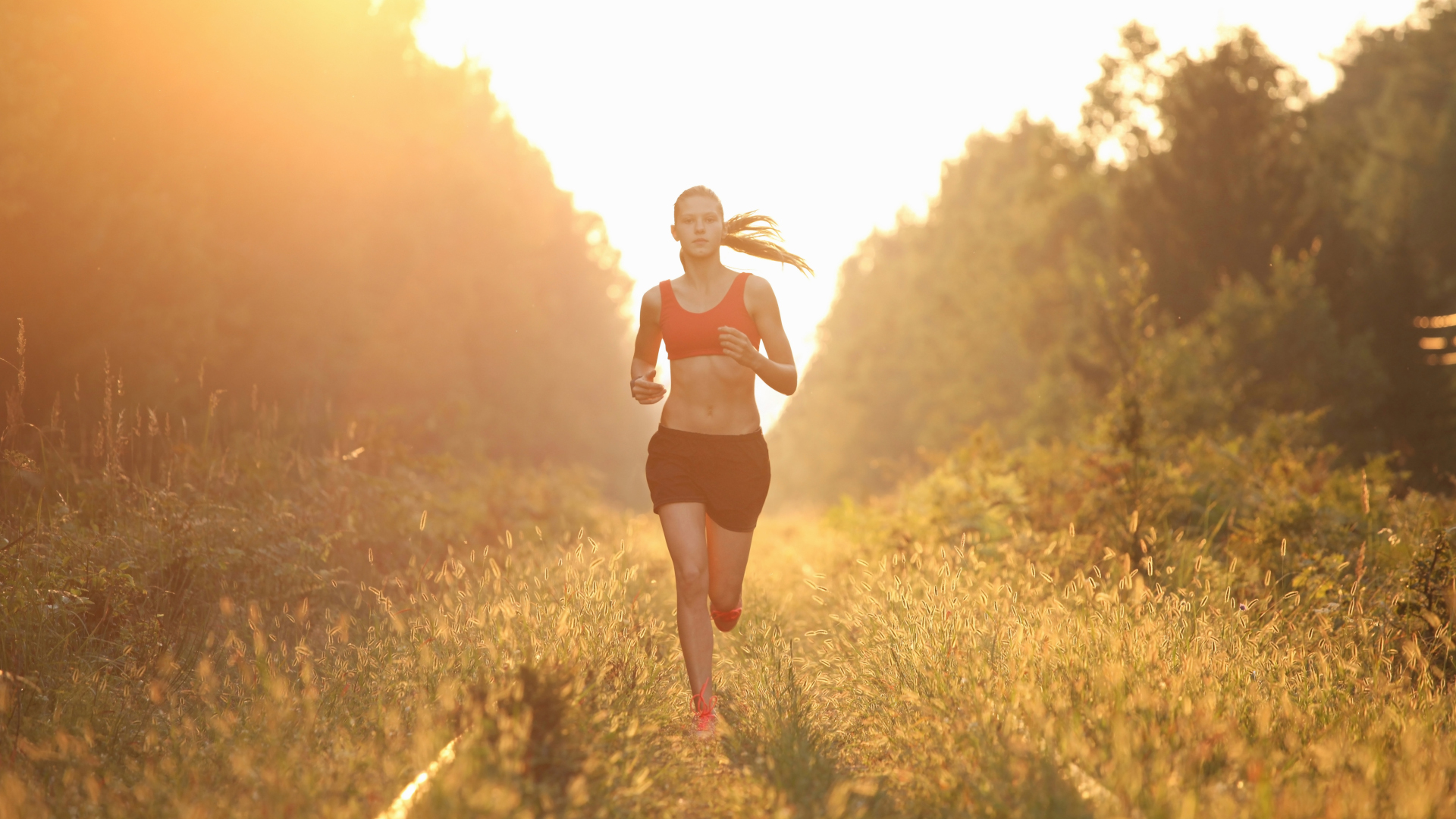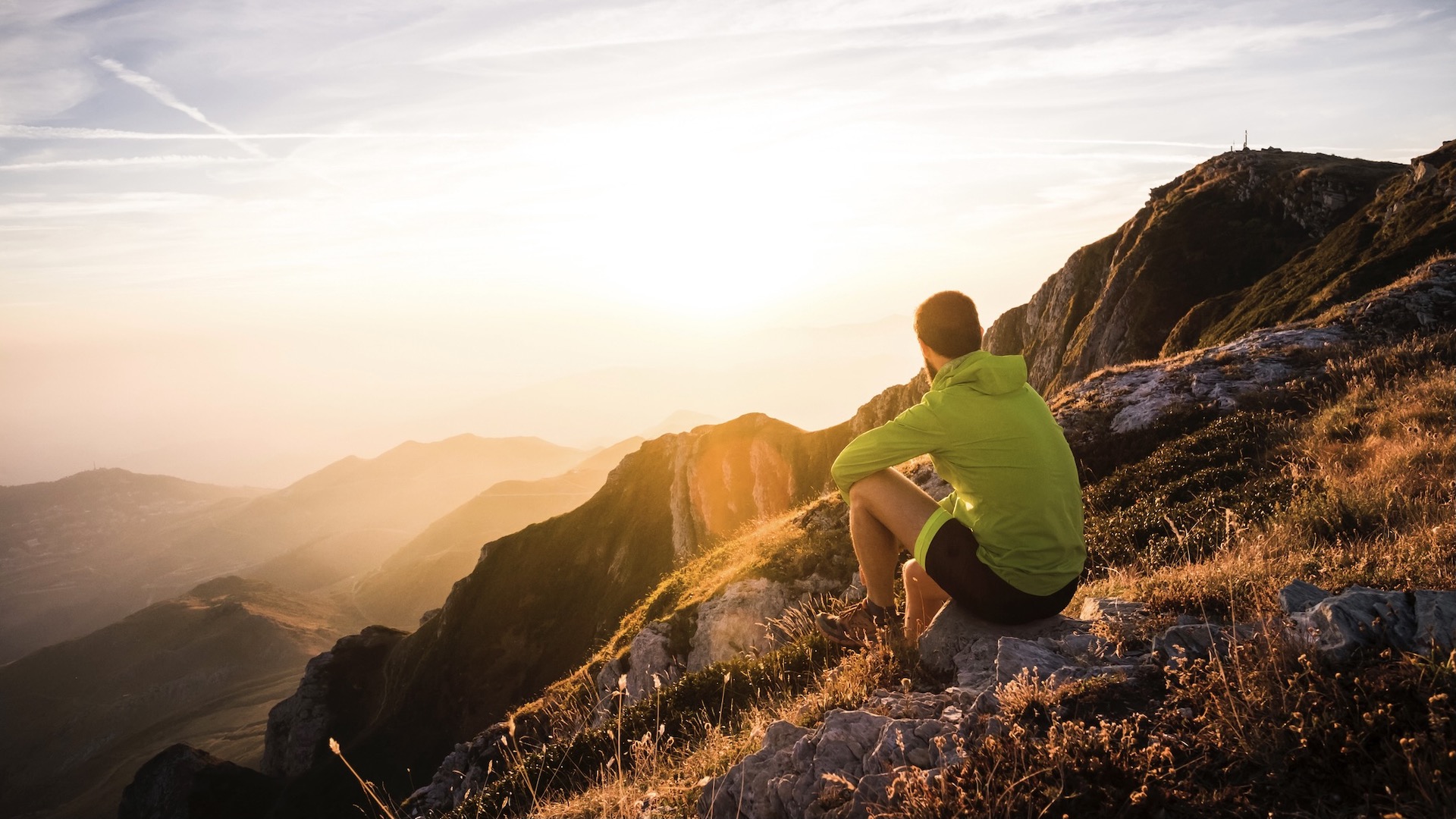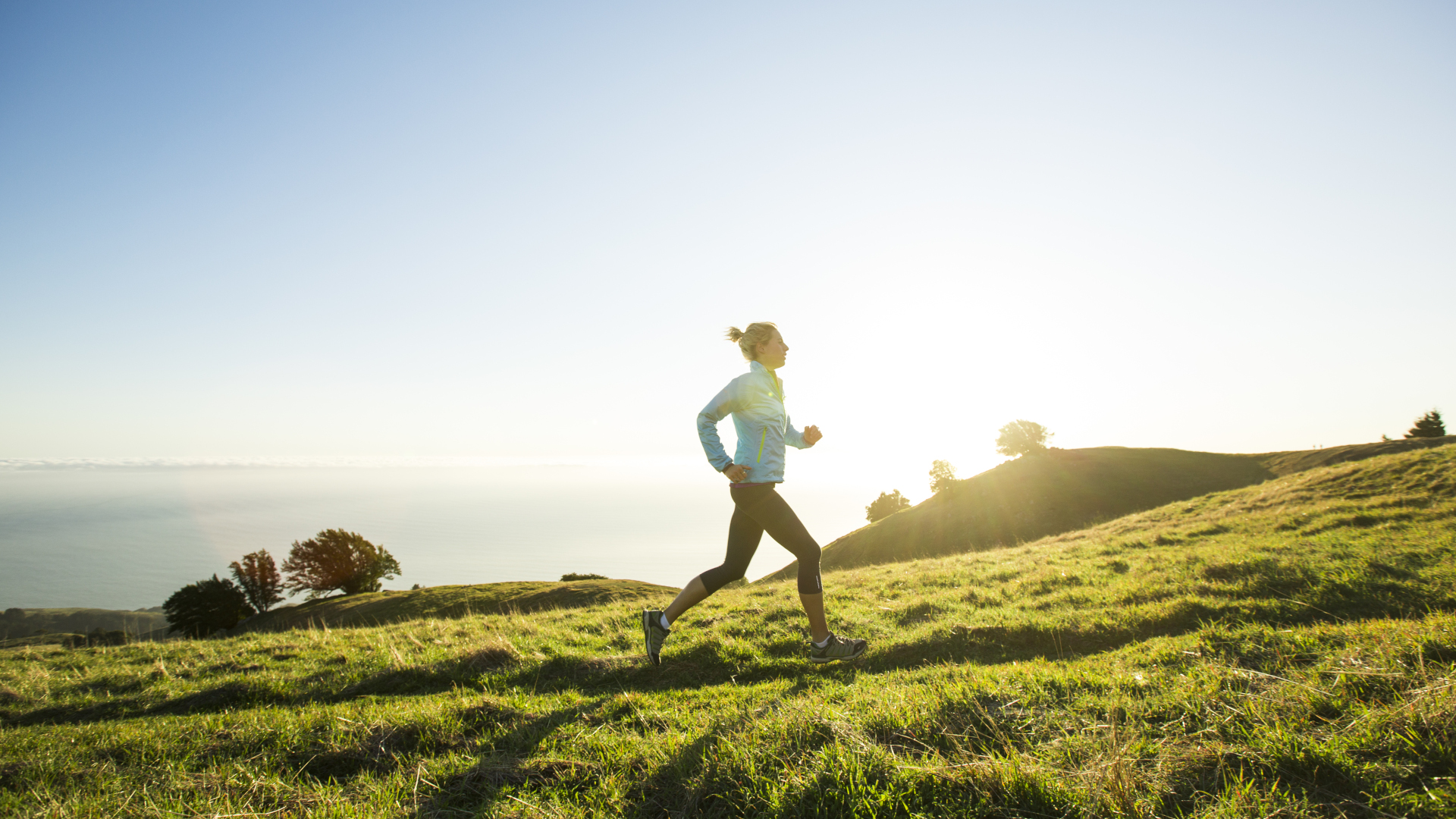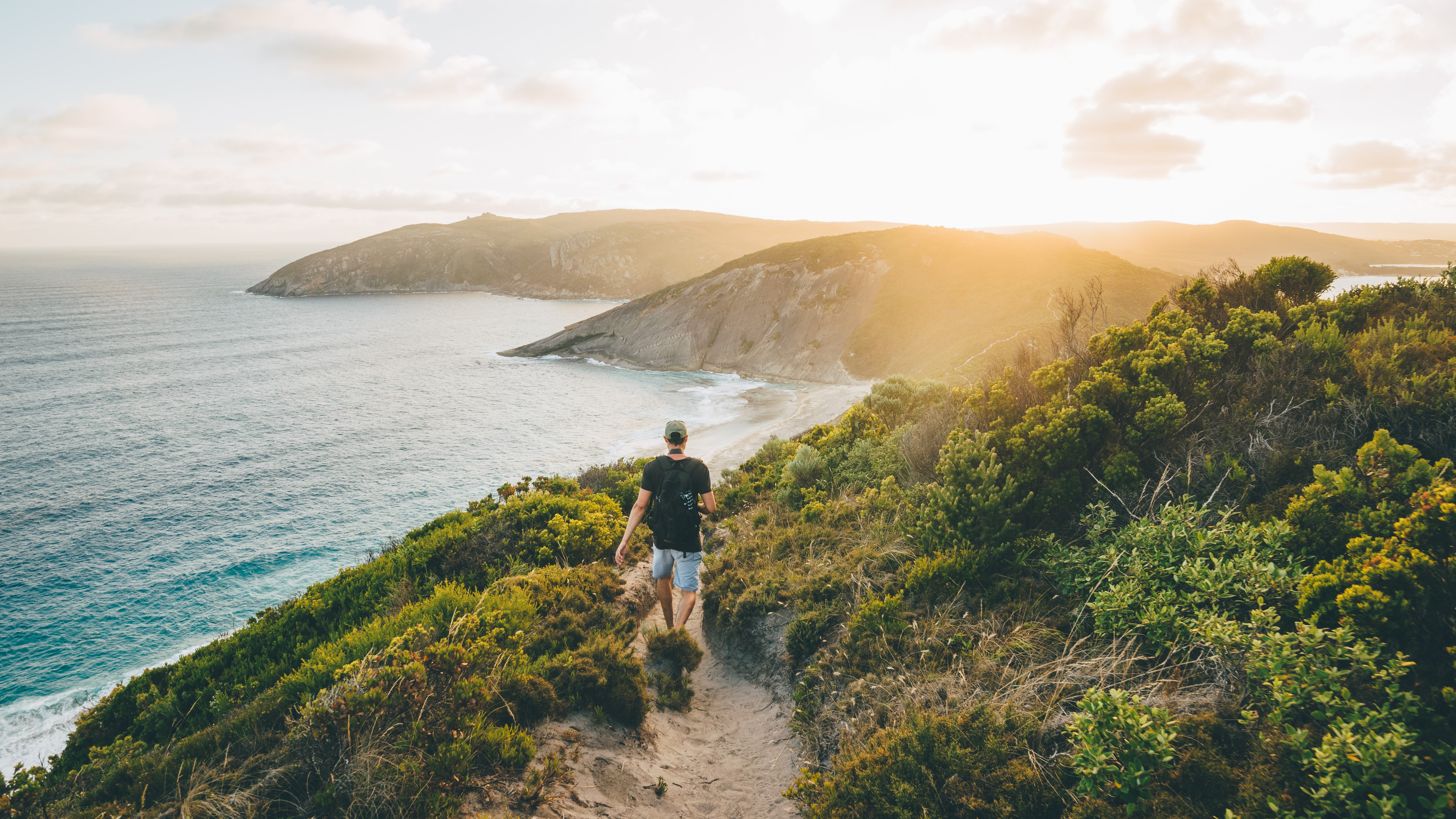4 science-backed benefits of evening exercise
Are you more of a night owl than a morning lark? Turns out there are some great benefits to saving your training for after work

All the latest inspiration, tips and guides to help you plan your next Advnture!
You are now subscribed
Your newsletter sign-up was successful
Like you, I definitely want to be a person who completes their morning run or hike by 9am, and sometimes – more often in the summer months – I am. But probably just as often, that early alarm doesn’t even get set, never mind snoozed, what with work and family obligations, and I’m not pulling my trail running shoes on until 5pm instead.
Though I definitely don’t start the day with the energy boost I get from a morning’s session on the trail, I have to admit that there are a lot of things I really love about an evening run or hike. Now the days are getting longer again, it feels great to shake off the tension of the day and getting out there once it has warmed up a little means I don’t have to wear my running jacket all the time, not to mention the lovely soft evening light.
But is it as good to workout in the evening as it is in the morning? After all, a 2020 study implicated consistent morning exercise in more effective weight management among people with obesity, and it’s not the only one to do so. So do we lose these benefits if our exercise doesn’t take place until dusk, or are there different health indications, I wonder? I decided to take a look at some studies to get a scientific answer and the news, my evening trail comrades, is good.

Is it good to exercise in the evening?
If you’ve researched the topic of exercise timing, you’ll no doubt have come across the statement that exercise at any time is good, and as a wellness practitioner myself, I assume this is in response to an increasingly sedentary society and doctors trying to get people to simply to do any exercise at any time instead of nothing. Instead, I’m certain that consistently exercising at 2am when your body is meant to be in its deepest sleep phase would in fact incur more damage to your health than benefit.
But while scientists don’t fully understand yet why different times of day influence how we exercise, they generally do agree that due to your body’s 24-hour clock, known as the circadian rhythm, exercising at different times of day will yield different benefits. Assuming your circadian rhythm is functioning optimally, meaning you’re not working overnight shifts or staying up half the night on screens, you should be experiencing your highest blood pressure around 6:30pm and high body temperature shortly after that, around 7pm. This and other factors may contribute to some of the following benefits of evening exercise.
1. Increased endurance
It often seems as though you’re going to be too wiped out after a long day at work to accomplish anything worthwhile on the trail, but have you ever been surprised by how much further you’re able to go in the evening? Though different studies have produced different results, a 2010 study found that participants had a greater work capacity when performing aerobic exercise in the evening versus the morning. The study found that blood pressure increased after the first minute and the athletes were able to persevere for longer. So if you find it difficult to pick up the pace at dawn or you’re looking to be able to run, ride or hike for longer, you might time your session for just before dinner.

2. Improved muscle power
Exercising in the evening may also help you run faster, jump higher or climb that steep slope with more vigor. Several studies have cited evening exercise with increased muscular strength and power. A 2013 study published in Chronobiology International measured muscle force production and power output in multiple sites around the body (hand, leg, back) and found them to be higher in the evening. Better muscular power doesn’t just mean you’ll move faster on the trail – it can also reduce your chance of injury by better absorbing impact at your joints and supporting your ankles, knees and hips better when you’re moving over rough ground.
All the latest inspiration, tips and guides to help you plan your next Advnture!
3. Reduced fatigue
Do you ever find yourself psyched to hit the trail at 6am, only to end up pooped 30 minutes later? It can feel disheartening, and it’s certainly good to look at other factors, such as length and quality of sleep and nutrition, but another reason might simply be that muscle fatigue is higher in the morning than the evening. According to a group of Scandinavian scientists, muscle fatigue among cyclists was lower at 6pm than 6am – if you’re less fatigued, you’ll be able to train longer and harder and reach those training goals more easily than at sunrise.

4. Better muscle synthesis
Cortisol is often known as the stress hormone, but it’s probably better to think about it as a waking up hormone that is naturally higher in the morning when it’s time to get out of bed. In men, cortisol inhibits testosterone production, and testosterone production supports muscle protein synthesis, otherwise known as the process of producing new muscle protein.
Because cortisol is naturally lower in the evening, scientists who performed a 2004 study on weight-training men asserted that evening workouts were best for anabolism, or in this case building muscle. Even if you’re not weight training, you may find that evening exercise is better for building muscle.

Now all of this might have you wondering, should you skip the morning workout altogether, lounge in bed and not even look at your hiking boots until 5pm? Not at all. There are loads of benefits to exercising in the morning – a 2022 study found that morning exercise is great for reducing abdominal fat and lowering blood pressure in women, which is a great incentive to set your alarm early. Then you’ve got the fact that early morning light is crucial for your health, resetting your body’s clock, balancing hormone production and boosting your body’s anti-inflammatory responses. So there’s always a case for getting out and moving in the morning, even if it’s just a short, brisk walk.
But based on the research on evening exercise, it actually seems as though if your goal is to increase your performance and get stronger, go faster or for longer, there’s a good case for delaying your workout, at least some days of the week. However, it’s important not to time a really strenuous session close to when you plan to go bed, or you may not be able to sleep. So for runners, save your long runs and interval training for the mornings and do your recovery and short runs before dinner.
And finally, if you are getting out on the trail in the evening, be prepared with a headlamp in case you miss-time things, and carry water and a warm layer like a down jacket for emergencies. If you're recreating in bear and mountain lion country, these animals are most active at dawn and dusk, so regardless of whether you’re exploring in the morning or evening, carry bear spray and keep your ears free of headphones.
- Best road running shoes: tested by Advnture's experts
Julia Clarke is a staff writer for Advnture.com and the author of the book Restorative Yoga for Beginners. She loves to explore mountains on foot, bike, skis and belay and then recover on the the yoga mat. Julia graduated with a degree in journalism in 2004 and spent eight years working as a radio presenter in Kansas City, Vermont, Boston and New York City before discovering the joys of the Rocky Mountains. She then detoured west to Colorado and enjoyed 11 years teaching yoga in Vail before returning to her hometown of Glasgow, Scotland in 2020 to focus on family and writing.

